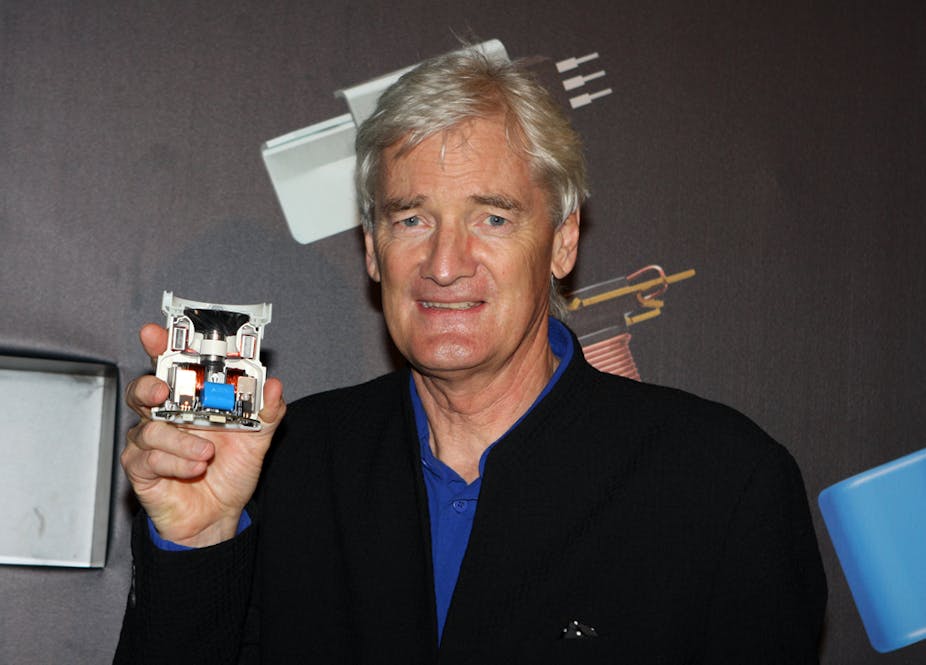Serial entrepreneur and inventor James Dyson has spoken out against crowdfunding, arguing that the emerging trend is no good for supporting meaningful inventions. However, Dyson may have overlooked some of the benefits to inventors besides simply raising cash.
Crowdfunding is a process by which large numbers of individuals contribute sums of money towards a common project, objective or enterprise. Major global crowdfunding platforms, such as Kickstarter and Indiegogo are quickly becoming household names. UK platforms including WeFund, Crowdcube, Crowdmission and Bloom are starting to hit the mainstream too.
It has been estimated that donation-based crowdfunding now raises around £310m every year, while schemes that offer equity in return for donations raise £28m and those that offer other types of reward £20.5m. The alternative finance market has grown by an average of around 75% per year since 2011 and this trend is expected to continue into next year as well.
Small businesses particularly benefit from crowdfunding and have seen their fundraising increase by 254% over the last three years. This is a stark contrast to the huge difficulties that businesses have faced in accessing finance since the financial crisis of 2008. The growth of crowdfunding also promises to break down many other barriers preventing access to finance by traditionally underrepresented groups, such as female entrepreneurs or people from under-privileged backgrounds.
But Dyson claims that “less glamorous ideas that are big in their impact often get overlooked” on crowdfunding platforms and that “people tend to plough money into video games or fancy apps rather than support revolutionary new technologies”.
Even though I have asked similar questions myself, it’s worth remembering that crowdfunding campaigns offer several advantages over and above simply generating funding.
Successful campaigns allow entrepreneurs to engage with groups of enthusiastic champions, fans and early adopters. This can help drum up further interest via word of mouth, which can be hugely valuable in the early stage of a new business or product launch. Crowdfunding can also operate as a form of advertising, both to consumers and within the industry itself, leading to opportunities for networking and new contacts that can be vital to success.
Learning to love failure
Crowdfunding campaigns offer the opportunity for entrepreneurs and start-ups to test the market for a new business or product with very little cost or risk. Herein lies another major benefit – crowdfunding allows entrepreneurs to fail fast.
Dyson himself is a great advocate for embracing the role of failure in the entrepreneurial process, famously progressing through more than five thousand iterations and prototypes of his Dual Cyclone vacuum cleaner before eventually finding success. Surely a low-cost, low-barrier mechanism for raising funds, generating followers, testing the market and, if necessary, failing fast has to be good for entrepreneurism.
As a prime example of this, the campaign for the Ubuntu Edge set records when it received pledges of nearly $13m via Indiegogo in August 2013. Despite this unprecedented support, the project didn’t actually meet its (very ambitious) target of $32m and ultimately didn’t make it to the production stage.
However, the interest generated by the campaign proved invaluable to developers Canonical in demonstrating the significant market appeal of phones running the Ubuntu operating system and the longer-term potential demand for “super” smart phones that can be docked and used as replacements for desktop PCs.
Perhaps Dyson has a point that support for certain engineering projects may be limited if the benefits aren’t immediately obvious to the audience, but in many such cases the fault may lie with the entrepreneur themselves rather than the crowdfunding model. Running a crowdfunding campaign can be a demanding process with a steep learning curve. It’s absolutely vital to pitch the idea to the right audiences using the right platform and focus on the right aspects and applications of new ideas.
Although video games admittedly make up quite a significant proportion of the most successful crowdfunding campaigns, there are also many examples where crowdfunding has helped drive forward major developments in some of the most revolutionary new technologies, such as 3D printing and the internet of things.
Crowdfunding can be a hugely effective and engaging way for ordinary people to contribute to the sorts of projects, businesses and enterprises that captivate and inspire, as well as helping to drive major technological, economic and even social change. I can’t help but wonder if James Dyson would have had such a cynical view of crowdfunding if it had existed when he was developing his Dual Cyclone vacuum cleaner. He may have found it invaluable as a means to raise the money he needed to get his project off the ground, while also helping him to fail faster and find success a little earlier.

